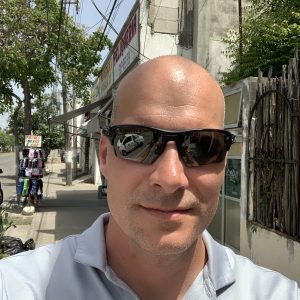Six years ago, author and psychology professor Jean Twenge warned of a youth mental health crisis on the horizon. Rates of depression, anxiety, and loneliness were rising. And she had a hypothesis for the cause: smartphones and the social media that come with them.
In her influential 2017 book iGen, Twenge describes members of the Gen Z cohort as “born in 1995 and later, they grew up with cell phones, had an Instagram page before they started high school, and do not remember a time before the Internet.”
Dr. Twenge identified a number of defining trends for “iGen’ers, some of which are causing severe mental health issues for many members of this cohort. “They are at the forefront of the worst mental health crisis in decades, with rates of teen depression and suicide skyrocketing since 2011,” Twenge writes in iGen.
Last year, Nicholas Karadaras made a similar point in his book Digital Madness. “Research shows that the empty, sedentary, addicting, isolating, and self-loathing lifestyle created by Big Tech drives depression and hopelessness,” he writes. “Yet the more depressed and empty we feel, the more we’re driven to escape those feelings with more of the digital drug that’s driving the problem to begin with—a classic addiction catch-22.”
The unfolding mental health crisis of America’s youth shows no signs of slowing down. “The inexorable rise of teen anxiety ought to be a national crisis,” warned Derek Thompson in The Atlantic in February. In her new book, Generations, Dr. Twenge now provides a groundbreaking, revelatory portrait of the six generations that currently live in the United States. She points out that Gen Z (iGen) members born between 1995-2012
- Are twice as likely to be dissatisfied with their lives than millennials at the same age
- Are twice as likely to be clinically depressed as teens and young adults than millennials were
- Are twice as likely to take their own lives as teens compared to millennials
According to Twenge, members of Gen Z, rather than millennials, are the most straightforwardly affected by the development of the internet because they never lived in a world without it. In Generations, “Twenge follows up with a deeper dive into their mental health,” wrote Casey Schwartz in the Washington Post. “Her findings align with recent, much-discussed reports from the Centers for Disease Control and Prevention of teenage distress.”
“The number of teens with clinical-level depression doubled between 2011 and 2020,” Twenge writes. “There is a full-blown mental health crisis among young people, and it was building long before the COVID-19 pandemic.”
“Every indicator of mental health and psychological well-being has become more negative among teens and young adults since 2012,” Twenge writes in Generations. “The trends are stunning in their consistency, breadth, and size.”
Turning Winds provides a therapeutic respite from this dysfunctional cultural experience, reconnection with core human values, and the holistic education and therapeutic alliance needed to perceive and practice intentional living.
“Kids today are so bombarded with societal expectations, the internet, social media, and so much of the demands that society puts on them,” says Turning Winds therapist Kim Sparks, LCPC. Parents bring their teens to our remote place in Montana “to make them kind of disconnect and have them only focus on themselves.”
When parents come up here, they are relieved to see the healthy setting their kids will experience. “They’re not going to be distracted with everything out there; phones, internet, television, social media, even the pressures of school and fitting in,” says Sparks. “Most parents feel this is a great privilege for their kids to be up here.”
Contact us online for more information, or call us at 800-845-1380. If your call isn’t answered personally, one of us will get back to you as soon as possible.









